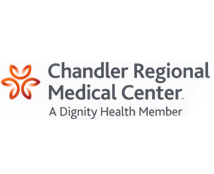Cardiologist Hope To Spread Awareness Anxiety Linked To Stroke
The American Heart Association has just released the results of a study that confirms anxiety is linked to a higher risk of stroke. The study was funded by the National Institute of Mental Health and the National Heart, Lung & Blood Institute. Cardiologists want to make sure that this information reaches the general population. Anxiety is a growing problem in our society and that translates to the potential for an increase in strokes.
Researchers report those with the most symptoms of anxiety had a whopping 33 percent increase in the risk of stroke compared to those with the least number of symptoms. Maya J. Lambiase of the University of Pittsburgh School of Medicine, published in the Dec. 19 online Stroke journal, after controlling cardiovascular and depression, high anxiety remained associated with a 13 percent to 20 percent increase in risk for stroke. This is one of the first studies to clearly consider the role of anxiety in relation to stroke.
A study in 2008 looked at anxiety disorders in general and failed to find a link between stroke and anxiety. Another study back in 2000 found depression, not anxiety, linked to stroke. Lambiase explained to MedPage Today that this latest study examined anxiety along a continuum in the population rather than as an explicit disorder, which is the main difference in this study compared to previous one.
The study followed 6,019 adults for 16.29 years. During this time, there were blood tests, medical exams, physiological exams, and interviews. The General Well Being Schedule was used to measure anxiety symptoms. Trained interviewers administered it.
Occurrences of stroke were identified through the cardiologist/hospital reports as well as death certificates. There were 419 strokes identified and the analysis showed a link between anxiety and stroke in 17 percent after an adjustment for demographic factors like education, age, BMI and race.
The complete details of the study can be found online, but what this study does highlight is just how important it is to continue studying just how anxiety affects the increase in risk of having a stroke. Cardiologists are likely to agree this needs to be further explored.
According to cardiologists the following could also put you at risk of stroke.
The following are risk factors that are controllable:
• Atrial fibrillation
• High blood pressure
• Diabetes
• High cholesterol
• Problems with circulation
• Atherosclerosis
• Physically inactive
• Use of alcohol
• Obesity
The following are risk factors that are uncontrollable:
• Gender
• Age
• Family history
• Race
• Fibromuscular dysplasia
• Previous stroke
• TIA
• Patent foramen ovale
You should become familiar with your personal risks of stroke. If you suffer from anxiety, you can speak with your doctor to make sure it is being controlled properly to ensure you do not increase your risk of stroke and if you have any other controllable risk factors, the time is now to make the necessary changes to reduce your risk of stroke.
Living a healthy lifestyle is always important and can significantly reduce your risk of stroke.To see a local Phoenix Az based Cardiologist, please visit – Cardiologist Phoenix Az












Leave a Reply